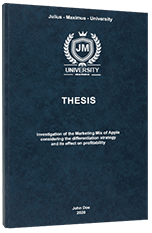
As a college or university student, you may obtain most of your research when writing a professional paper from books, newspapers, professional journals, as well as online databases. However, in certain situations, you may find the need to cite information gathered from other sources such as interviews. Therefore, it is important to know how to cite an interview. So, how should students handle the sourcing of interviews? In this article, you will find out how to cite an interview and the rules to be followed when citing interviews.
How to cite an interview - FAQ
You need to cite interviews due to reasons because there could be an expert that could provide certain insights that you cannot obtain elsewhere. Also, you need to cite an interview in a paper because there is little written information on a topic.
Tip: If you are done with your academic work, we can help you with dissertation printing!
When citing an online interview, you need to indicate the name of the interviewee. Also, if the title of the interview is available, you must put it in quotation marks. Then cite the rest of the entry like you would in any other web content. Indicate the website’s name in italics, add the name of the publisher or sponsor, the URL and date of publication. Key to note is that if the interview you are quoting does not have a title, indicate the descriptor Interview before the name of the interviewer and after the name of the interviewee.
For an interview that is located in a section or chapter of a book, indicate the title of the book, the author (s), publisher, date of publication and page range.
For a journal, indicate the mane of the journal, volume and number, date and the page range.
If you are using an online audio or video recording, indicate the website or platform, the user and the date that it was uploaded.
How to cite an interview: Definition
When learning how to cite an interview, there are a few basic rules that need to be followed for both APA and MLA styles. However, the basic rule is that you should list first the name of the interviewee. This is then followed by the interviewer’s name, if provided, and place and date that the communication or interview occurred. Here is how to cite an interview in both formatting styles.
How to Cite an Interview in APA vs. MLA
How to cite an interview in APA
In APA citation, the interviews that you perform yourself have a different format as compared to published interviews. When citing the latter, the standard format of the source that it was published is to be followed. On the other hand, your own interview that is not accessible to the reader should not be added in the reference list. It is instead cited in the text as a personal communication.
How to cite an interview in MLA
In-text citation in MLA style involves putting the interviewee’s name as the author. When adding the Works Cited section, the name is of the interviewee has to be followed by the interview’s title which is put in quotation marks. In the case where there’s not available title, the description Interview can be used (without any quotation marks or styling).
If you performed the interview yourself, indicate your name as well as the interview’s date. When citing a published interview, add the interviewer’s name and the source’s full details.
How to cite an Interview: Types
Interviews naturally are in two categories: personal (unpublished) interviews and print or broadcast (published) interviews, although some interviews may appear in similar other formats like web content or email format. Here are some of the different types of interviews and how to handle them:
How to cite an interview you conducted on your own
Unpublished or personal interviews are interviews conducted by yourself. You must indicate where the information can be found. In this case, you are supposed to add the name of the interview and interviewee. Also, it is crucial to indicate the descriptor “personal interview” as well as the date the interview occurred.
Key to note when learning how to cite an own interview that you have conducted cannot be put in the reference list. This is due to the fact that it can’t be retrieved by your readers. The manner in which you will refer in the text will depend on if you will include the interview transcript in the appendix. An example of how to cite an interview that is unpublished would look like this:
Vernie, Murray. Personal Interview. 23 March 2021.
How to cite an interview that is published
When citing published interviews, indicate the full name of interview and interviewee. In the case where the interview’s name is part of a greater work such as a television program, film series or a book, add the interview’s title in quotation marks, then add the greater work’s title in italics. Where the interview appears to be an independent title, you need to place it in italics. If it is a book, indicate the name of the editor or author after the title of the book.
Key to note when learning how to cite an interview is that there are interviews with no titles. If the interview you’re quoting doesn’t have a title, indicate the descriptor “Interview” (without quotation marks) after you have placed the name of the interviewee and before the name of the interviewer. An example of how to cite an interview that is published is:
Gaitskill, Jane. Interview with Chris Smith. Nicaragua Review, vol.23, no.6, 2017, pp. 42-69.
How to cite an interview that is anonymous
When citing interviews that have anonymous sources, do not indicate the name of the source. This can be done by using a descriptor such as “anonymous informant” or “recreational heroine user”. However, in this case, you must indicate in the text the reason for your omission of the source’s name.
In a Nutshell
Understanding how to cite an interview and personal communications in both APA and MLA styles is essential in writing professional papers. The tips mentioned above will help you understand how to cite an interview and the types of interviews that exist. Also, citing an interview enables your readers to understand where you obtained your information better. It also helps your readers to appreciate the special insights provided by your sources in your arguments. Here is a summary of how to cite an interview:
- Always indicate the interviewee’s name, and the interview’s title. If it does not have a title provided, indicate it using the descriptor, Interview.
- There are two categories of interviews: published and unpublished.
- Personal communication involves interviews that are unpublished and are conducted via in-person interviews, emails, text messages, online chats, unrecorded lectures and similar methods.
- MLA citation follows the format (Interviewee’s Last name, first name. Interview conducted by interviewer’s name. Interview date.)
- APA citation style does not require adding of personal interview in the list of references. You only need to place a parenthetical citation in the paper’s body. Its format is (First initial. Last name. Personal communication. Interview’s date.)

